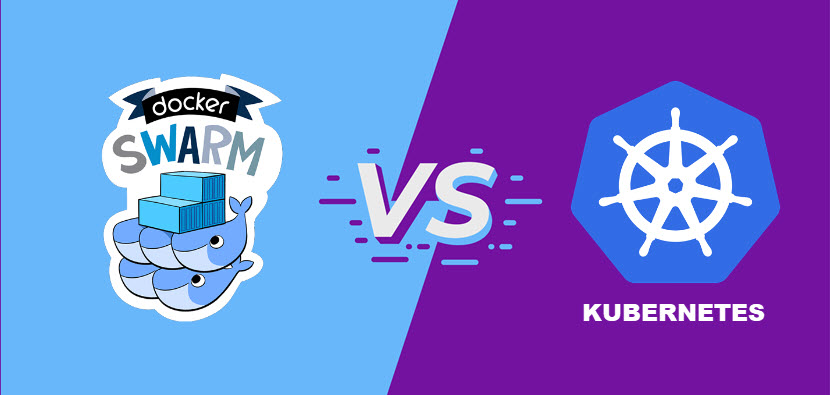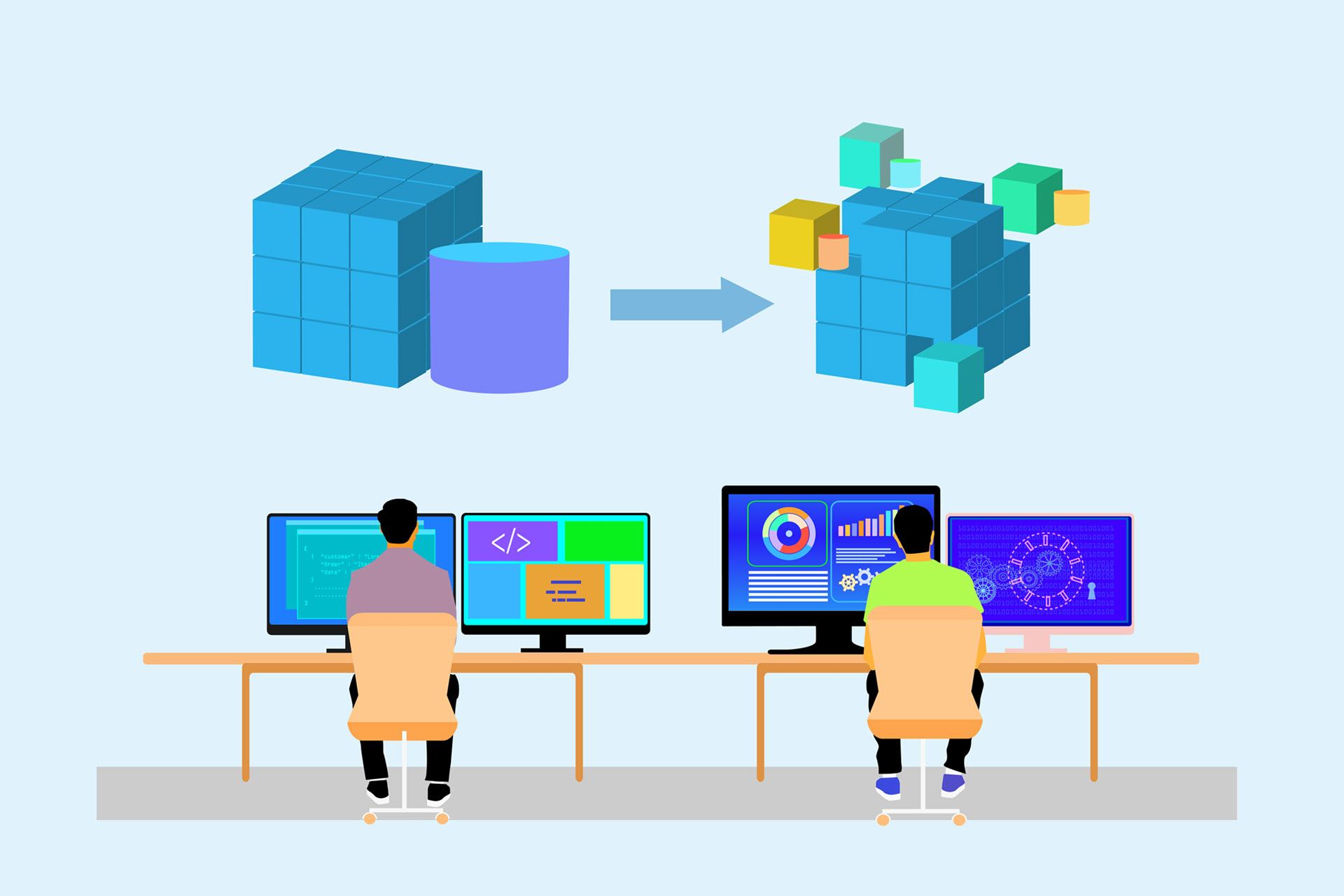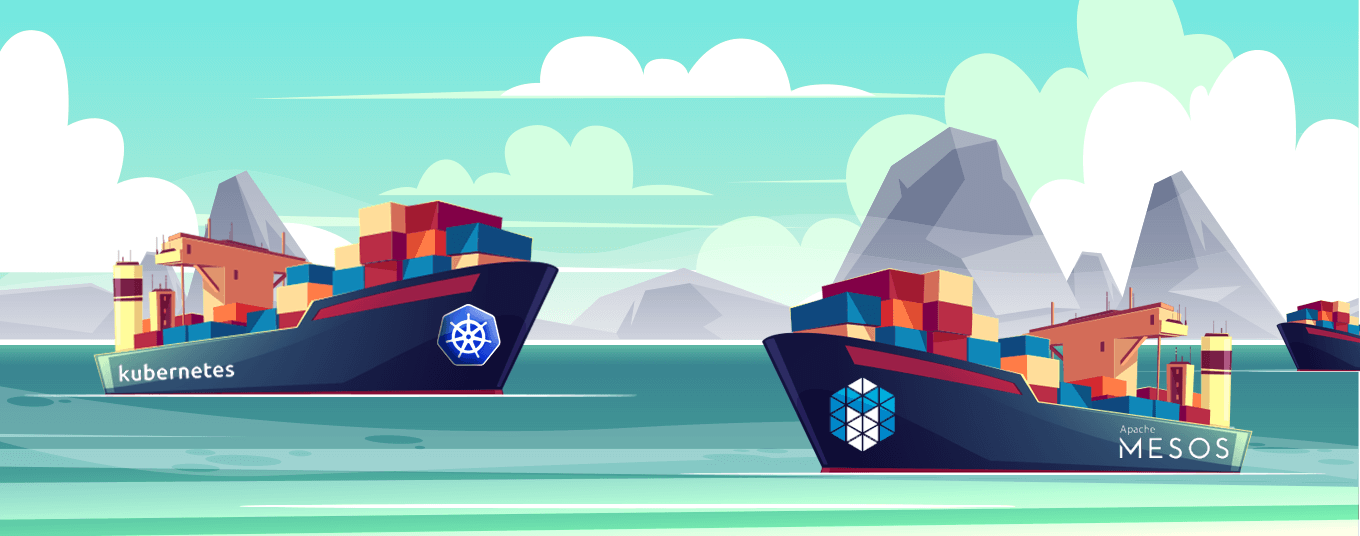Containerization has been a game-changer for developers and operations teams alike. Developers can code once and deploy almost anywhere, while operations enjoy faster, smoother deployments and effortless environment management. But what happens when you have many containers to manage, especially at scale?
This is the situation where container orchestration tools shine. These powerful platforms automate deployment, scaling, and health checks, ensuring your containerized applications run like clockwork. However, with a vast array of free and paid options available, choosing the right orchestration tool can feel overwhelming.
This article explores the top container orchestration tools for 2024 and guides you through critical considerations to find the perfect fit for your needs.
What Is a Container Orchestration Tool?
A container orchestration tool is a system designed to automate container deployment, management, scaling, and networking.
Containers are lightweight, standalone packages that contain everything needed to run software, including the code, runtime, system tools, system libraries, and settings. They've become popular for deploying applications because they can be easily packed, shipped, and run across different computing environments.
Container orchestration tools address the challenges of managing large-scale, containerized applications by automating deployment, scaling, and management tasks. They enable organizations to deploy more reliable, scalable, and efficient applications, making them indispensable to modern cloud-native application development and deployment strategies.
Why Do You Need Container Orchestration Tools?
As applications grow in complexity and scale, container orchestration tools become indispensable for the efficient handling of containerized environments. Here are some of the reasons why these tools are vitally important in modern IT ecosystems:
- Automated deployment. They can automatically decide where to place containers based on their resource requirements and constraints.
- Scalability. They allow the scaling of applications up or down by adding or removing containers based on demand.
- Load balancing. They can distribute traffic among containers to ensure the application remains accessible and performs well, even when individual containers or the underlying infrastructure fails.
- Health monitoring. They can monitor the health of the containers and automatically replace failed ones, ensuring that the application remains available.
- Configuration and secret management. They can manage the configuration and secret information the application needs, such as database passwords and API keys.
Discover the differences between containers and virtual machines (VMs) and learn about optimal use cases for each type of virtual environment.

Best Container Orchestration Tools
Here is a list of the fourteen best container orchestration tools, highlighting their key features, pros, cons, and pricing plans.
1. Kubernetes
Kubernetes, developed by Google, is the leading open source container orchestration platform. According to the latest surveys, 61% of organizations worldwide have adopted Kubernetes for managing, scaling, and automating computer application deployment.
Features
- Self-healing capabilities.
- Horizontal scaling.
- Service discovery and load balancing.
- Automated rollouts and rollbacks.
- Secret and configuration management.
Pros
- Highly flexible.
- Strong community support.
- Works with any container runtime.
- Extensive documentation.
Cons
- Complex to learn and set up.
- Overkill for small deployments.
Pricing/Plans
- Open source and free.
- Costs are associated with hosting and managing a Kubernetes cluster, whether self-hosted or through a cloud provider.
Master Kubernetes deployment and management with our in-depth article: What Is Kubernetes.
2. Docker Swarm
Docker Swarm is Docker's native clustering and orchestration tool. It is designed for ease of use and integrates deeply with the Docker ecosystem.
Features
- Native clustering for Docker containers.
- Decentralized design.
- Declarative service model.
Pros
- Simple to set up and use.
- Seamless integration with Docker.
- Low resource demands.
Cons
- Less feature-rich compared to Kubernetes.
- Smaller community.
Pricing/Plans
- Open source and free.
Discover the similarities and differences between Kubernetes vs. Docker Swarm.
3. Amazon ECS (Elastic Container Service)
Amazon ECS is a fully managed container orchestration service that Amazon Web Services (AWS) provides. It allows you to run, stop, and manage containers on a cluster.
Features
- Deep integration with AWS.
- Allows assigning IAM roles for tasks.
- Scalable via Auto Scaling groups.
- Easy to use.
Pros
- Managed service.
- Tight integration with AWS.
- Robust security features.
Cons
- Limited to AWS.
Pricing/Plans
- You pay for the AWS resources (EC2 instances or Fargate usage) you use to store and run your applications.
Learn about the differences between ECS vs. Kubernetes.
4. Google Kubernetes Engine (GKE)
GKE is a managed environment in Google Cloud for deploying, managing, and scaling your containerized applications using Google infrastructure.
Features
- Auto-scaling.
- Integrated logging and monitoring.
- Multi-cluster support.
- Network policies for enhanced security and efficiency.
Pros
- Easy to set up.
- Managed Kubernetes
- Robust integration with Google Cloud.
Cons
- Limited to Google Cloud Platform.
Pricing/Plans
- Free tier available.
- Pricing is based on cluster size and resources consumed.

5. Azure Kubernetes Service (AKS)
AKS is a managed Kubernetes service from Microsoft Azure. It simplifies deploying, managing, and operating Kubernetes clusters.
Features
- Integrated development environment in Visual Studio Code.
- Azure Active Directory integration.
- Monitoring tools.
Pros
- Easy to use.
- Fully managed Kubernetes.
- Seamless integration with Azure services.
Cons
- Limited to Azure.
Pricing/Plans
- Free
- You pay for the Azure resources consumed by your cluster.
6. Apache Mesos
Apache Mesos is a powerful cluster manager that provides efficient resource isolation and sharing across distributed applications or frameworks.
Features
- Fine-grained resource sharing.
- Scalable to tens of thousands of nodes.
- Containerization support.
- Framework-agnostic platform.
Pros
- Highly scalable and efficient.
- Supports a variety of container frameworks including Docker and Kubernetes.
Cons
- Complex to understand and deploy.
- Less focus on container orchestration than Kubernetes.
- Better suited to large-scale deployments.
Pricing/Plans
- Open-source and free.
- While using Apache Mesos is free, operational costs come from the infrastructure and management overhead.
Discover the differences between Kubernetes vs. Apache Mesos.
7. OpenShift
OpenShift, developed by Red Hat, is an enterprise Kubernetes platform. It offers additional features on top of Kubernetes for building, deploying, and managing applications.
Features
- Developer and Operations-centric tools.
- Automated installation, upgrades, and lifecycle management across the container stack.
Pros
- Enhanced security features.
- Integrated development tools.
- Strong support.
Cons
- More complex.
- Expensive, especially for small teams or startups.
Pricing/Plans
- Subscription-based pricing with a 60-day free trial.
- Specific plans depend on the deployment model.
Check out our in-depth comparison of Kubernetes vs. OpenShift.
8. Rancher
Rancher is an open-source multi-cluster Kubernetes management platform. It allows you to operate Kubernetes everywhere, run in the cloud, on-premises, or at the edge.
Features
- Centralized cluster management.
- Integrated Kubernetes deployment.
- Multi-cloud support.
- Container health monitoring.
Pros
- User-friendly.
- Supports multiple Kubernetes distributions.
- Extensive documentation.
Cons
- Complex to navigate for beginners.
Pricing/Plans
- Open source and free.
- Enterprise support is available for a fee with personalized quotes.
If you are looking into Rancher, you may find the following guides useful:

9. Nomad
Nomad by HashiCorp is a simple and flexible workload orchestrator for deploying and managing containers and non-containerized applications across on-prem and clouds at scale.
Features
- Simple single binary deployment.
- Multi-datacenter and multi-region support.
- Job scheduling.
Pros
- Lightweight.
- Easy to integrate with HashiCorp stack.
- Flexible workload support.
Cons
- Less community support than Kubernetes.
- Focused more on scheduling than full orchestration.
Pricing/Plans
- Open source and free.
- An enterprise version with additional features is available. Pricing is negotiated based on your needs and deployment.
Check out our in-depth comparison between Nomad vs. Kubernetes.
10. Mesosphere DC/OS
DC/OS (The Datacenter Operating System) is an open-source, distributed operating system based on the Apache Mesos distributed systems kernel.
Features
- Service discovery.
- Automated service deployment.
- Resource isolation.
Pros
- Scalable.
- Support for a variety of container technologies, including Docker and Kubernetes.
Cons
- Steep learning curve.
- Less popular compared to other tools.
Pricing/Plans
- Open source and free.
- Companies like D2iQ offer commercial support subscriptions with service-level agreements, training, and technical assistance.
11. Portainer
Portainer simplifies container management in Docker, Swarm, Kubernetes, and Azure ACI environments. It provides a detailed overview of Docker and Kubernetes environments and is designed to help teams manage their containers easily without deep knowledge of the command-line interface (CLI).
Features
- Easy-to-use web UI.
- User access control.
- Supports Docker, Swarm, Kubernetes, and Azure ACI, and templates for quick application deployment.
Pros
- User-friendly interface.
- Simplifies container management.
- Broad compatibility with different environments.
- Excellent for beginners and small to medium-sized deployments.
Cons
- Lacks advanced features for complex Kubernetes management.
- Acts as an additional layer that some may prefer to manage via CLI or native tools.
Pricing/Plans
- Community edition is open source and free.
- Offers a business edition with additional features and support.
For more information, check out our in-depth comparison of Portainer vs. Rancher, or learn how to install Portainer on Linux.

12. Helm
Helm is a package manager for Kubernetes that allows developers and operators to easily package, configure, and deploy applications and services onto Kubernetes clusters.
Features
- Easy management of Kubernetes applications through Helm charts.
- Simplifies the deployment of complex applications.
- Version control for deployments.
- Rollback features.
Pros
- Simplifies the complexity of deploying and managing applications in Kubernetes.
- Strong community and ecosystem.
- Thousands of pre-built charts.
Cons
- Steep learning curve for creating and managing your Helm charts.
- Dependency management can be tricky.
Pricing/Plans
- Open source and free.
For more information, refer to our guide: What Is Helm.
13. Cloud Foundry
Cloud Foundry is an open source platform as a service (PaaS) that provides higher abstraction over container orchestration. It supports the entire application development lifecycle, from initial development through all testing stages to deployment.
Features
- Easy application deployment and scaling.
- Support for multiple languages and frameworks.
- Marketplace for services.
- Application portability across clouds.
Pros
- Simplifies the developer's workflow.
- High productivity and speed of deployment.
- Strong community and commercial support.
Cons
- Less control over the underlying containers and infrastructure.
- More suitable for developers than for operations teams.
Pricing/Plans
- Open source and free.
- Enterprise versions are available from various vendors, each with its pricing model.
Learn about the differences between Cloud Foundry vs. Kubernetes.
14. Tanzu Kubernetes Grid (TKG)
Tanzu Kubernetes Grid by VMware provides a consistent, upstream-compatible Kubernetes distribution that can be deployed across on-premises, public clouds, and edge environments.
Features
- Consistent Kubernetes experience across environments.
- Integrated with VMware's infrastructure.
- Automated lifecycle management of clusters.
Pros
- Strong integration with VMware ecosystem.
- Support for enterprise requirements.
- Focus on security and compliance.
Cons
- Primarily targets VMware users.
- Complex for users not already invested in the VMware ecosystem.
Pricing/Plans
- Pricing is based on the Tanzu subscription model without an advertised price list.

How to Choose the Best Container Orchestration Tool?
Choosing the best container orchestration tool requires reflecting on project constraints, team skills, infrastructure preferences, and long-term goals.
Here are the areas you need to carefully evaluate in order to make an informed decision.
Scale and Complexity
The appropriate orchestration tool depends on the project scope. Smaller projects or simple applications might find a tool like Docker Swarm sufficient due to its simpler approach and easier management.
Conversely, large-scale or complex applications with microservices architectures would benefit more from Kubernetes' robust features.
Infrastructure
If you are heavily invested in a particular cloud provider, consider using the orchestration tools that are natively supported and optimized for that environment. For example, Amazon ECS for AWS, Google Kubernetes Engine for Google Cloud Platform, or Azure Kubernetes Service for Microsoft Azure.
Team Expertise
The learning curve for some tools is steep. If your team is new to containerization, consider using a simpler tool or a managed service to reduce initial complexity.
Additionally, assess the size and support offered by the tool's community, as a larger community often translates to more resources and help.
Integration and Compatibility
Ensure smooth integration with your existing CI/CD pipelines, cloud monitoring systems, and development practices. Furthermore, verify compatibility with your preferred container runtimes, programming languages, and frameworks.
Management and Operational Capabilities
Based on your application's requirements, evaluate features like auto-scaling, self-healing, service discovery, and load balancing. Consider the trade-offs between self-managed and cloud-managed deployments, including operational overhead and costs.
Security and Compliance
Assess each tool's security features, including role-based access control, secrets management, and network policy capabilities. Organizations in regulated industries should choose tools that facilitate adherence to relevant compliance standards like HIPAA, PCI DSS, and GDPR.
Cost
While some orchestration tools are open source, you must consider the total cost of ownership, including infrastructure, operational, and management costs. If opting for a managed service, understand the pricing model and estimate costs under different loads.
Futureproofing and Scalability
Consider not only your current needs but also potential future requirements. A tool that scales well and is frequently updated by its community or provider will be a more sustainable choice.
Trial and Evaluation
Before committing, run a pilot project or proof-of-concept with the most promising choices. This trial period allows you to evaluate ease of use, compatibility, and performance in a real-world scenario.

Container orchestration tools are the cornerstone of DevOps. They support DevOps principles by automating deployments, fostering scalable and adaptable architectures, and enhancing collaboration between development and operations teams.
Containers: The Powerhouse of Modern Development
As containerized applications become more prevalent, managing their complexities becomes a critical undertaking. Container orchestration tools address this challenge by automating key tasks associated with containerized deployments.
Kubernetes is the most popular orchestrator, but other options might be better depending on your needs. Additionally, tools like Rancher and Portainer simplify the interaction and management of container clusters.
Ultimately, the choice of tool depends on your application's requirements, existing technologies, desired control level, and how you will manage the orchestrator.



